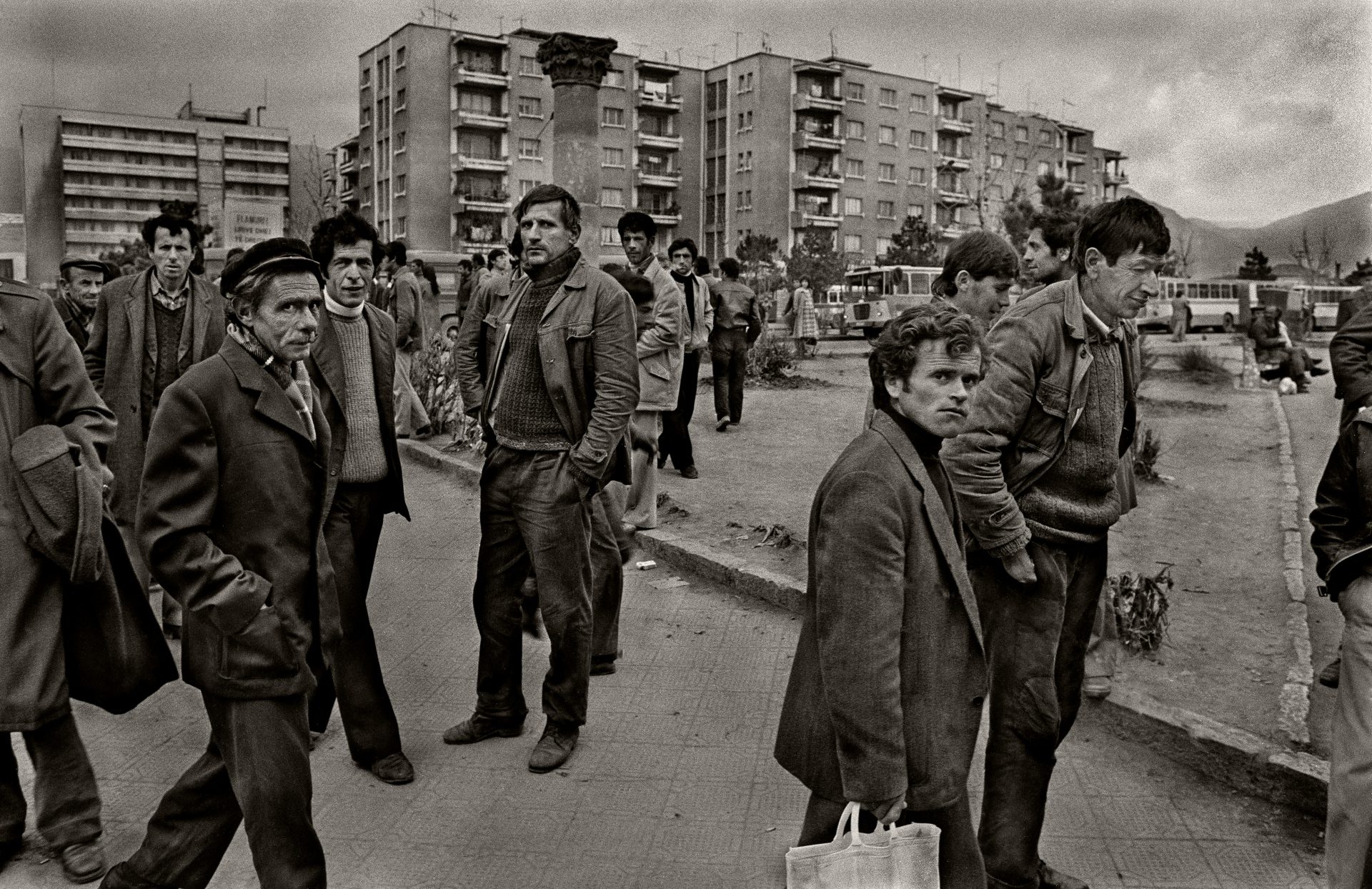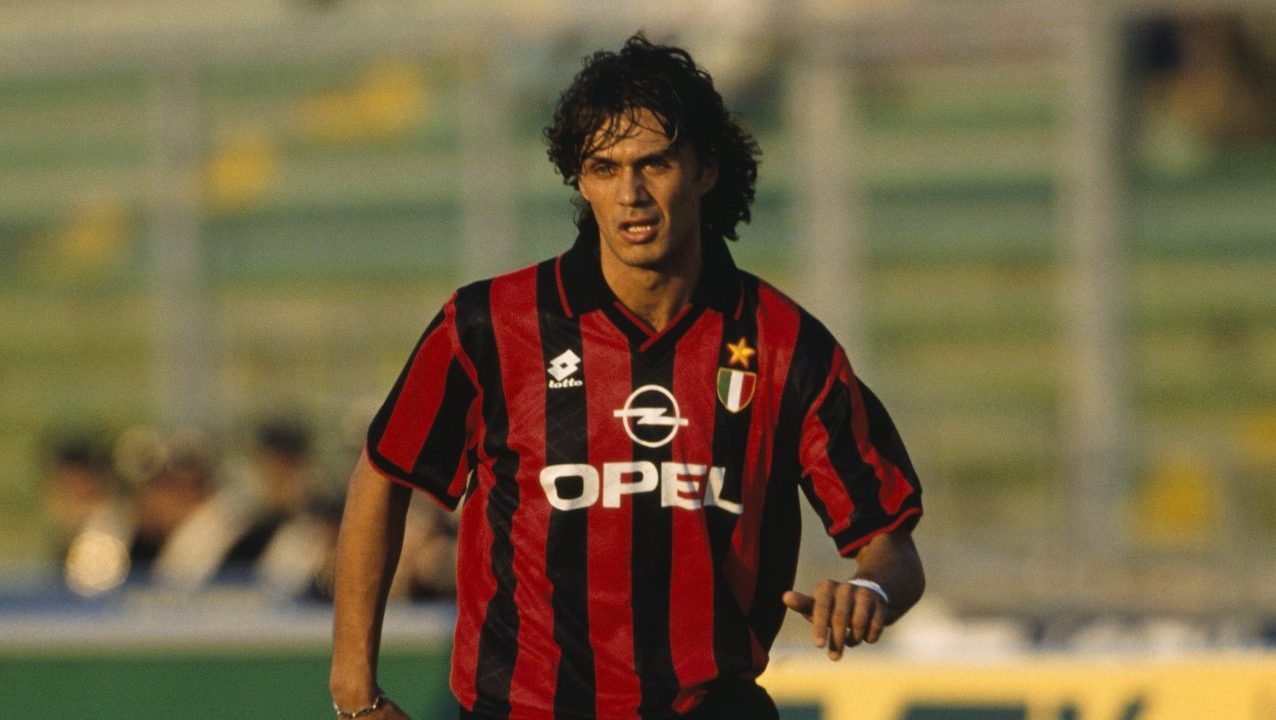For those of us old enough to remember the days before the fall of the Berlin Wall there was no greater mystery in Europe than Albania.
Like the North Korea of today it was completely closed off from the rest of the world. Unlike the North Korea of today there was no internet back then, leaving scant sources of information about this enigmatic nation on the Adriatic at the southern end of the Balkans.
We knew Albania was once ruled by a king with the magnificent name of Zog and we knew that for most of the Cold War the nation was run by Enver Hoxha, a communist apparently so hardline he considered the Soviet Union too wishy-washy even to countenance international relations.
There was a national football team that would sometimes deign to enter and finish bottom of a World Cup or European Championship qualifying group – in 1982 Alexei Sayle marked their return to the international fold for the first time since 1974 with a spoof Albanian World Cup squad record (“Albania! Albania! Not nearly as repressive as Romania!”) – but that was about it.
Bizarrely there used to be a curious little Albanian shop in a Covent Garden back street, rumours of which prompted my proto Europhilic teen self to travel up to London in the late 1980s looking for it. And lo, there it was, next to a launderette. Inside there was an idiosyncratic range of key rings, desk flags, LPs of folk music, rudimentary handicrafts, busts in various sizes of Enver Hoxha and books of propaganda on display while a sign invited you to “choose the perfect present from the world’s only officially atheist state”.
I could hardly refuse such go-ahead marketing so shelled out for a red flag badge with a profile view of Enver Hoxha in gold at its centre and a pamphlet of one of the Albanian leader’s speeches, whose title I forget but which was probably about the triumph of the proletariat, and stuff.
Leaving the shop pinning my new badge to my army surplus satchel I watched as the sun flashed off it and considered the mysterious land of Albania to be pretty cool. It turns out that I was not only chronically naïve in that assumption, I was also unforgivably wrong.
I didn’t realise quite how wrong until I read Mud Sweeter Than Honey: Voices of Communist Albania by Margo Rejmer, translated from Polish by Zosia Krasodomska-Jones and Antonia Lloyd-Jones. In the opening pages I learned the chastening lesson that during the nation’s communist era 6,000 people were murdered by the regime, 7,000 more perished in labour camps and nearly 1,000 political opponents went to prison and never came out again. All this in a population peaking at barely three million.
The statistics are shocking enough but, as ever, it’s the individual stories that get under your skin and Mud Sweeter Than Honey is packed with harrowing examples.
Hoxha died in 1985 having ruled Albania for 41 years and he is a looming, malevolent presence over the entire book. Even after Stalin’s death in 1953 and the international disgrace that followed when details of his murderous reign of repression emerged, Hoxha remained to the end Europe’s only ruling unreconstructed Stalinist.
Through his secret police the Sigurimi, not as famous as the Stasi or KGB but at least as sociopathic and certainly as terrifying, Hoxha kept the population in a permanent state of fear. Hundreds of thousands were coerced into co-operating with the state’s surveillance operations: Albanians believe as many as one in four of them was informing.
Hoxha, who like the very worst dictators mistook paranoia for intuition, increasingly isolated Albania from the rest of the world until it was entirely alone. He cut ties with Yugoslavia in 1948, remaining convinced as long as he lived that its neighbour was Albania’s greatest enemy, cut loose from the Soviets in 1960 and in 1978 even severed relations with China, Albania’s last friend on the international stage.
For more than 30 years Hoxha’s most loyal acolyte was his number two, prime minister Mehmet Shehu, who died in 1981 in an apparent suicide. One of Shehu’s sons had become engaged to a volleyball player with tangential family links to an exiled dissident in the US which was enough in Hoxha’s eyes to finish his loyal deputy (although it was more likely that Shehu’s keenness to re-establish official links with foreign powers sealed his fate). The ripples spread: several members of the Shehu family were executed, imprisoned or killed themselves and Shehu’s son Bashkim gives a candid and measured account of a life that began with unrivalled privileges before descending into terror and tragedy.
Away from the inner circle we learn how every last intimate aspect of Albanian life was at the mercy of the state.
The youngest child of a family of 14, sent to live in Tirana with a childless uncle who’d spent 12 years in prison on trumped up charges, finds himself within a week being dragged away by a secret policeman who screams at the distraught guardian: “Do you think we’d let a treacherous louse like you corrupt a child?”
“To him I was just an object that gave him the chance to harass an enemy of the people,” recalls the nephew.
A woman tells of how Albanian mothers couldn’t consider their children belonged to them or even be in control of their own bodies. “My son was not my son,” she says, “his mother was the Party,” while with abortion and contraception declared illegal in an effort to increase the population, “the Party was lurking even in our bodies”.
Another man is sent to prison for two years for commenting during a football match between Albania and West Germany that the German captain Franz Beckenbauer was a great player. This, according to the subsequent criminal charge, was a grievous insult to the Albanian players.
Once in prison his sentence was extended because he expressed unhappiness at being there until he’d served ten years, a decade in which he could reflect on how the only people to hear the original comment had been his friends.
The book is understandably light on levity but the reader cannot help but warm to the effervescent Ylli Bodinaku, who on July 2, 1990, eight months after the fall of the Berlin Wall, bundled his wife and two young children into the cab of a lorry and drove it through the wall surrounding the German embassy, emerging from the dust and rubble to claim asylum.
Word of the breach spread through Tirana and some 3,000 people followed. All of them were transferred to Germany to start new lives while Bodinaku received a congratulatory fax from German foreign minister Hans-Dietrich Genscher. “You have demolished the Berlin Wall of Albania,” it read. “You are harbingers of spring for the Albanian nation, the heroes of democracy.”
Bodinaku meanwhile was more concerned with the wonders of the room in which he was handed the fax. For one thing, it had a fireplace. He’d never seen one before.
“I surfed the foreign channels on a huge TV set and I couldn’t believe that was what the world really looked like,” he says. “I felt flooded with rage for all those lost years, those decades of humiliation and poverty.”
The mastermind of all that humiliation and poverty was Enver Hoxha. In a brief but spittingly angry chapter called ‘The ballad of Uncle Enver and the blood that was shed’ Rejmer writes of his death in 1985: “Enver departed his life propped up on his pillows, hands clean and conscience gleaming, with all those who loved him gathered at his bedside, while all those who feared him timidly stood watch, and all those who hated him were far away, barely alive from hunger and daily torment, or else they were dead, forever silent and fading from memory, with a bullet in the chest or the back of the head, or with the mark of the hangman’s noose faded long ago.”
The Albanian shop in London also faded long ago, barely outlasting the regime. I don’t know what happened to my Hoxha badge but after reading this extraordinary, eye-opening book I certainly regret ever buying it.
Albania, enigmatic, mysterious Albania, was always the untold story of the Cold War, the 1989 revolutions and the fall of the Berlin Wall. Mud Sweeter Than Honey goes a very long way indeed towards putting that right.
Mud Sweeter Than Honey: Voices of Communist Albania by Margo Rejmer, translated by Zosia Krasodomska-Jones and Antonia Lloyd-Jones is published on 21st October by MacLehose Press, price £18.99
A European Library
A weekly selection of fiction and non-fiction, new and old, to build a comprehensive literary portrait of our continent
ON BLACK SISTERS’ STREET Chika Unigwe (Vintage, £9.99)
Zwartzustersstraat, the Black Sisters’ Street of the title, is a road on the edge of the historic centre of Antwerp. For Nigerian-born Flemish writer Unigwe it is also the centre of the world for four sex workers from Africa who arrived hoping to fulfil their dreams yet immediately find those dreams drifting away.
When one of the women is murdered their lives are thrown deeper into turmoil but gradually each reveals their extraordinary story. Originally published in 2007, it remains a vivid and compelling portrayal of a side of Europe few of us will ever experience.




